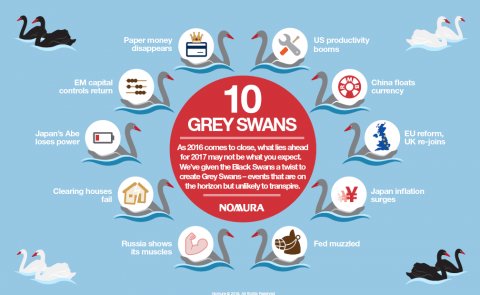Two years away (from being two years away)
At the National Basketball Association player draft in 2014, former college basketball coach and now broadcaster and analyst Fran Fraschilla offered this classic observation of then 18 year-old Brazilian prospect Bruno Caboclo and his potential to become a successful NBA player:
"He's two years away from being two years away, (from being ready to play in the NBA), and then we'll see."
I thought about this gem of a line from Fraschilla in a recent conversation I was having with a friend about potential career choices. Why did the '2 years away' line come up?
Because I think that 2 years may be the new 5 years, in terms of the old classic interview "Where do you see yourself in 5 years?" question. Take your pick from fast-changing technology, new business models, disruption coming from all sides, and toss in a side dish of the gig economy and I think most people would have a really hard time seeing out five years into the future and be able to offer up a credible or coherent idea of what they think they will be doing then. Two years seems at least more tangible. The future can't move that fast, right? Don't answer that.
The really important point isn't just that 2 years might be the new 5 years, but that just like our pal Bruno Caboclo, what you don't want is to find yourself two years from now STILL being two years away from whatever goal/plan you had set out to reach.
It may be more realistic and reachable to set out career plans and goals in 2 year increments as opposed to 5, (or whatever your dopey interviewer says), but the downside is that 2 years passes really, really fast.
Just ask Bruno, who in 2 1/2 full seasons in the NBA has played in a grand total of 22 games and scored a whopping 16 total points.
The upside? Bruno is still only 21 and has time to get to where he wants to be. 'Losing' two years might not hurt him that much.
But I am pretty sure that most of the rest of us don't have that kind of luxury. Or an NBA contract.
Have a great day!
 Career tagged
Career tagged  8 Man Rotation,
8 Man Rotation,  HR,
HR,  Human Resources,
Human Resources,  Jobs,
Jobs,  career,
career,  planning
planning  Email Article
Email Article 
 Print Article
Print Article 



